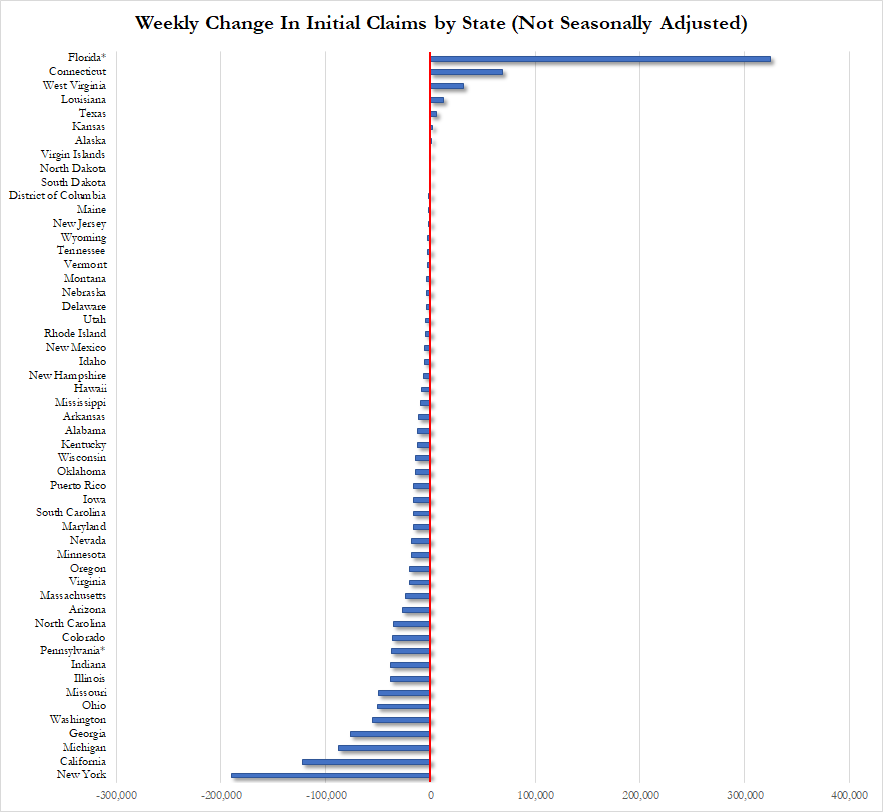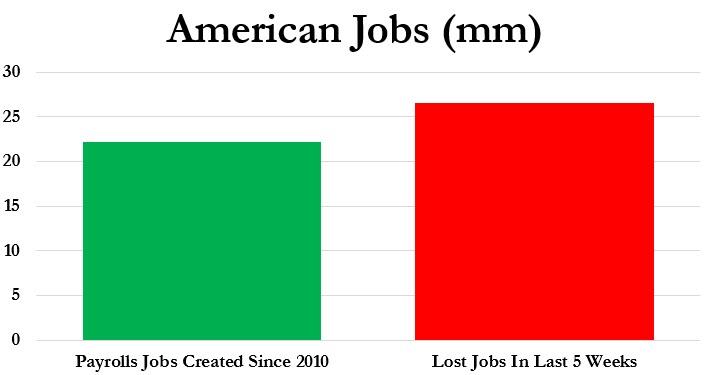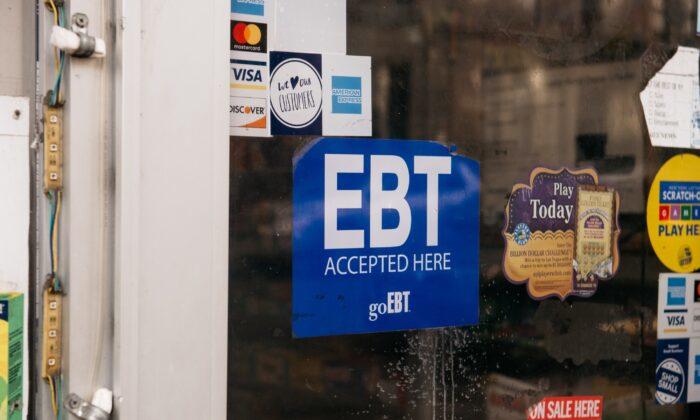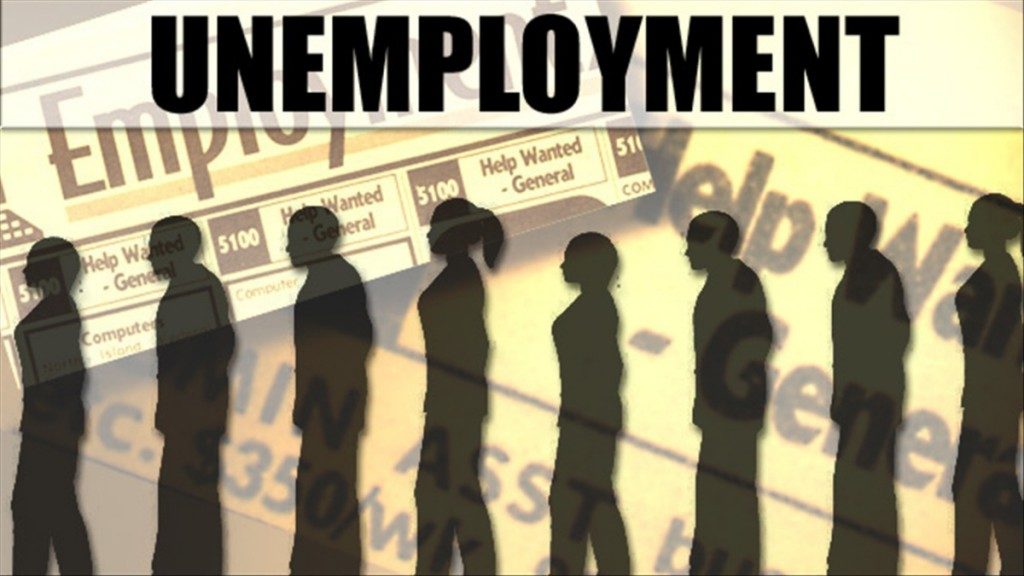
By Tyler Durden
In the last week 4.427 million Americans filed for unemployment benefits for the first time.
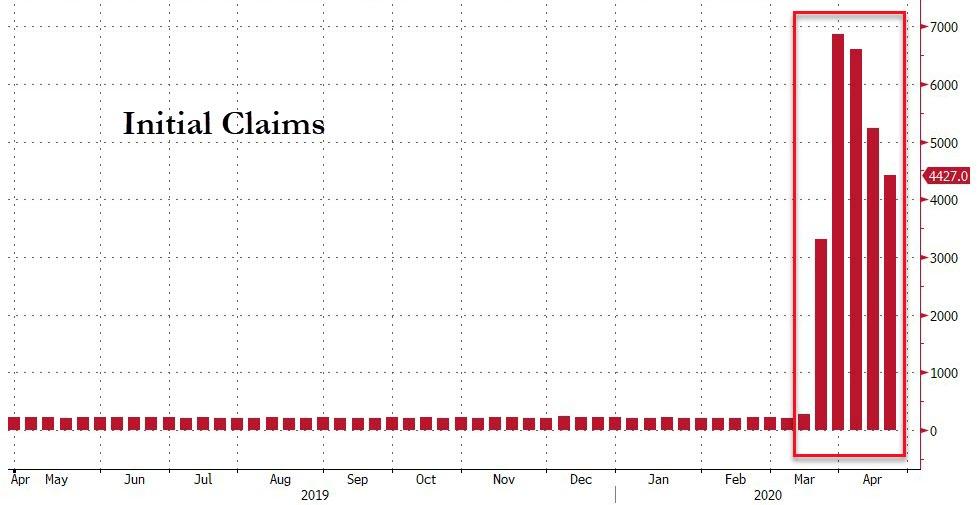
Source: Bloomberg
That brings the four-week total to 26.5 million, which is over 10 times the prior worst five-week period in the last 50-plus years.
And of course, last week’s “initial” claims and this week’s “continuing” claims… the highest level of continuing claims ever
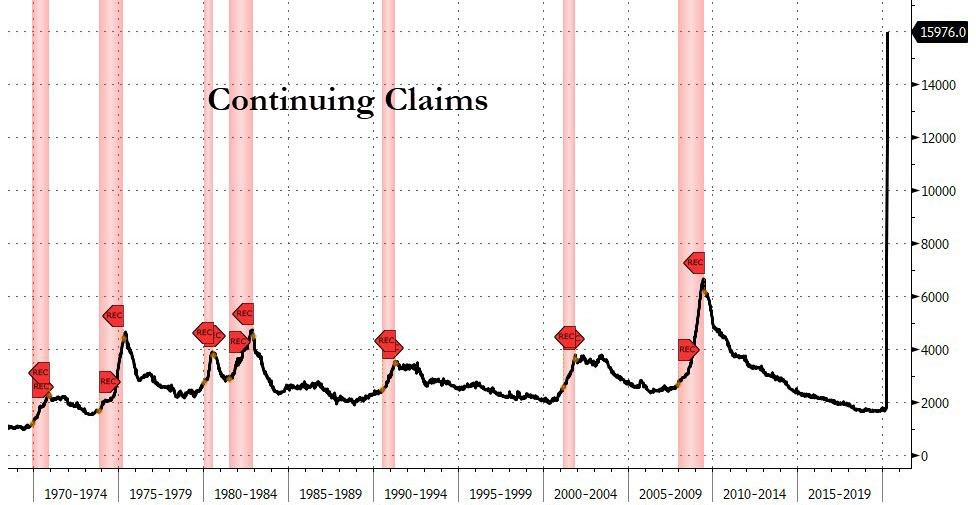
Source: Bloomberg
A breakdown of initial claims by state shows that the weekly devastation is easing, with the number of (not seasonally adjusted) claims in New York, California and Michigan declining notably over the past week, while Florida and Connecticut still showing dramatic increases.
And as we noted previously, what is most disturbing is that in the last five weeks, far more Americans have filed for unemployment than jobs gained during the last decade since the end of the Great Recession… (22.13 million gained in a decade, 26.46 million lost in 5 weeks)
Worse still, the final numbers will likely be worsened due to the bailout itself: as a reminder, the Coronavirus Aid, Relief, and Economic Security (CARES) Act, passed on March 27, could contribute to new records being reached in coming weeks as it increases eligibility for jobless claims to self-employed and gig workers, extends the maximum number of weeks that one can receive benefits, and provides an additional $600 per week until July 31. A recent WSJ article noted that this has created incentives for some businesses to temporarily furlough their employees, knowing that they will be covered financially as the economy is shutdown. Meanwhile, those making below $50k will generally be made whole and possibly be better off on unemployment benefits.
Furthermore, as families across the nation grapple with lost jobs and struggle to get meals on the table, The Epoch Times’ Zachary Stieber reports that food stamp benefits are up 40%, according to the Department of Agriculture.
The increase will “ensure that low-income individuals have enough food to feed themselves and their families during this national emergency,” Secretary of Agriculture Sonny Perdue said in a statement.
“President Trump is taking care of America’s working-class families who have been hit hard with economic distress due to the coronavirus. Ensuring all households receive the maximum allowable SNAP benefit is an important part of President Trump’s whole of America response to the coronavirus.”
Families receiving food stamps can typically get a maximum benefit of $768. Through the increase in emergency benefits, the average five-person household can get an additional $240 monthly for buying food. Families already at the maximum won’t get additional benefits. SNAP normally costs the U.S. government approximately $4.5 billion each month. The allotments made under the Families First Coronavirus Response Act, which President Donald Trump signed, is adding nearly $2 billion per month to that total. The emergency funds are made available through waivers the Department of Agriculture makes for each state.
But, hey, there’s good news… well optimistic headlines as Treasury Secretary Steven Mnuchin said he anticipates most of the economy will restart by the end of August.
Finally, it is notable, we have lost 565 jobs for every confirmed US death from COVID-19 (46,785).
Was it worth it?
Source: ZeroHedge
Disclaimer: We at Prepare for Change (PFC) bring you information that is not offered by the mainstream news, and therefore may seem controversial. The opinions, views, statements, and/or information we present are not necessarily promoted, endorsed, espoused, or agreed to by Prepare for Change, its leadership Council, members, those who work with PFC, or those who read its content. However, they are hopefully provocative. Please use discernment! Use logical thinking, your own intuition and your own connection with Source, Spirit and Natural Laws to help you determine what is true and what is not. By sharing information and seeding dialogue, it is our goal to raise consciousness and awareness of higher truths to free us from enslavement of the matrix in this material realm.
 EN
EN FR
FR

